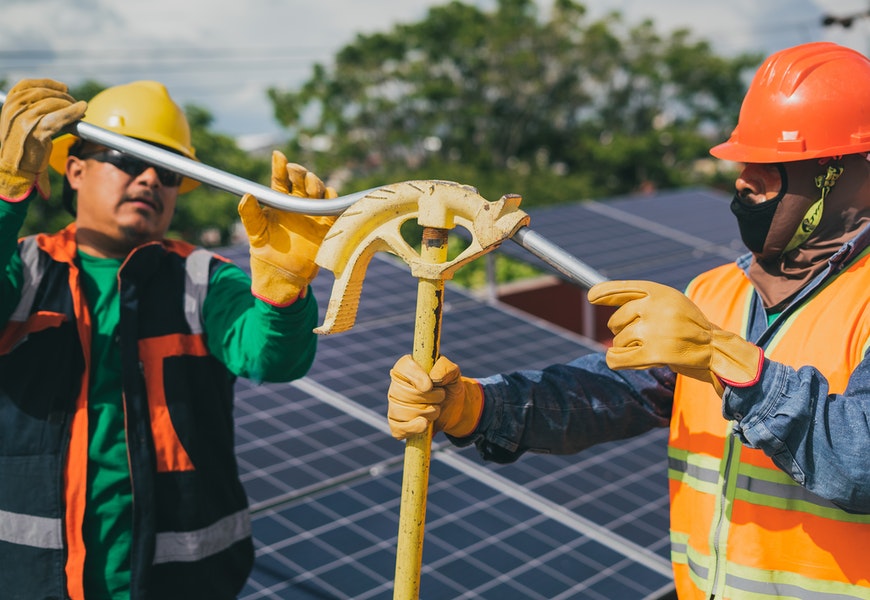
It’s no secret that solar power is becoming more and more popular. Nearly seventy percent of Americans favor taking steps to become carbon neutral by 2050, which is great news for the environment. Solar power, after all, creates clean, renewable energy — which means it produces less of the harmful byproducts associated with burning fossil fuels.
As a homeowner, if you want to do your part for the environment and reap its associated benefits, adding solar panels to your home might be the best answer. But, how do you know if it’s for you? Hopefully, this post will help answer those questions.
4 Things You Need To Know Before Adding Solar Power to Your Home
1. Solar Panels Generate Clean Energy
One of the most significant benefits of switching to solar power is that it will help reduce your carbon footprint and other harmful emissions to the environment.
Unlike fossil fuels, solar panels produce clean electricity that doesn’t emit toxic chemicals into the air. When you switch from fossil fuels to solar electricity at home, you’ll positively impact the environment and reduce your carbon footprint.
2. Tax Credits and Incentives
The government offers tax credits and incentives to help make solar more affordable for homeowners. You may be eligible for tax credits or rebates that can help offset some of the initial costs associated with installing solar panels on your home.
3. Save Money Over The Mid-Term
The biggest reason for installing solar panels is that they’ll save you money in the long run. You’ll get free electricity from the sun, which can pay for itself quickly if you live in a sunny climate with high electric rates. You can also sell extra energy back to the grid if there’s more than you need at any given time.
4. Make Hay While The Sun Shines
If you live in an area with cloudy weather, you might not be able to rely on them for all your electricity needs. When there’s no sun, there’s no power — and that means your solar panel system won’t generate any electricity, and you will need an alternative source of power during those times.
If you’re looking at long-term savings over 30 years or more, solar panels may not be worth it if you live in an area that always gets less sunlight.
The Bottom Line
Whether you should put solar panels on your home depends on your circumstance. However, it’s important to note some drawbacks, such as the possibility of high installation cost and aesthetic issues.
In the end, each person has to make an informed decision that is right for them.
If you’re buying or selling a home in the Knoxville area, we can help. Please get in touch with us today so that we can provide guidance and ensure that your home buying or selling experience runs as smoothly as possible. Call us at 865-675-8326 or visit our contact page.
Thanks for stopping by!



